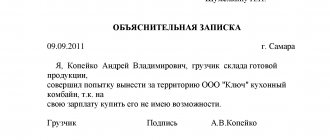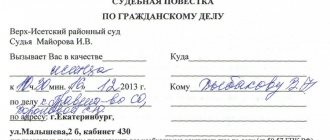Since ancient times, various prison subjects needed a person to keep order. Sometimes there were several such people in one prison facility. But this person was not officially approved in any position, but was simply called “supervisor.” And so it happened that in many places of deprivation of liberty the title of “supervisor” remained in common use.
The most famous and common are: “watcher in prison”, “watcher of the area” and “watcher of the city”. These three types of “lookers” have a number of similar, but at the same time different criteria, which will be discussed later in the article. They relate only to prison topics; with rare exceptions, these phrases are used in other contexts.
First, let's look at the word "lookahead"
It has two meanings (direct and figurative):
- Observing what is happening ahead. For example, a sailor looking into the distance through binoculars.
- A far-sighted person who thinks about tomorrow or carefully evaluates the outcome of an upcoming event; prudent, able to foresee the consequences of a future event.
Here are some examples:
- Kuzma Ivanovich is the lookout, showing us the way to the house.
- The lookout decided to take a break.
- The most important position is occupied by the lookout.
- The lookouts noticed an iceberg along the ship's course, but it was too late.
Now the meaning of the word “look-ahead” is clear.
What is known about Bay's past?
Bay-Ali’s “record” includes convictions for serious and especially serious crimes, which he committed as a police trainee at that time. In 2006, the Supreme Court of Chechnya sentenced Soltakhanov to 14 years in prison for banditry and 11 counts of robbery as part of an organized group. The appeal court changed the sentence to 12 years and 10 months - that is how long Bai served in prison. Together with Bai-Ali, 18 other defendants were involved in the case, including former police officers and the anti-terrorist center of Chechnya.
The court ruling states that the gang in which Bai was a member was organized in 2004 by a former employee of the anti-terrorist center of the Chechen Republic, Ismail Akbuzidov, and over two years, members of the group committed 31 attacks and one theft.
At the trial, Soltakhanov claimed that he was beaten to extract a confession, and in the appeal, the entire version of Bai’s defense was built on the fact that he “carried out the duties of a trainee and obeyed the orders of the police officers, and did not assume that he was participating in a gang.”
Many of the gang members chose just such a defense tactic - in the appeal they declared their service in law enforcement agencies and positive characteristics, and all the evidence in the case was falsified.
Bai-Ali served his entire sentence in the Novosibirsk maximum security colony IK-8. Usually, all former employees are sent to a specialized colony, but Bai could have been placed unofficially or asked to work in a regular zone - in such cases, the colony’s leadership, according to Sib.fm’s source, always meets the prisoners halfway.
In colony IK-8, Bai-Ali was recognized as a persistent offender; a representative of the colony, in his characterization of Soltakhanov, indicated that the prisoner was not employed, had a negative attitude towards work, and did not take part in the life of the detachment. Over 12 years and 10 months, Bai managed to earn 72 penalties, of which 27 times the prisoner was sent to a punishment cell.
Other characteristics of Soltakhanov include: “prone to escape”, “studying, propagandizing, professing or spreading extremist ideology.”
He was also classified as one of the “leaders and active participants of negative groups, as well as persons who have a negative influence on other suspects, accused and convicted persons.”
In 2022, Soltakhanov was released from prison. By decision of the Kalininsky District Court of Novosibirsk, he was assigned administrative supervision for a period of three years.
Consider the meaning of the term “looker”
The beholder is a concept from thieves' prison jargon. This is a person called upon to be responsible for order inside a cell, barracks, or camp. When free, he looks after the city, region, and so on.
The stress in the word falls on the second syllable - looking. Let’s select synonyms for the word “looker”: contemplating, observing, supervising, gawking. And also considering, seeing, looking, observing, noticing, looking around, looking and other words. There are a lot of synonyms for the word “looker”. Let's look at it more broadly.
Live “according to concepts”
Whatever suit the prisoner belongs to, he is obliged to comply with Zonov’s concepts. Concepts are established standards of behavior for prisoners in places of deprivation of liberty. Strict adherence to these unwritten rules helps to avoid conflict and sometimes life-threatening situations.
Prison laws (or concepts) are very similar to the norms of life in freedom. The paradox is that often prisoners who violated the law in freedom (for example, stole), in places of deprivation of liberty strictly adhere to the “don’t steal” rule.
Zonov’s basic concepts boil down to the following: don’t “knock” and don’t steal from your own people (that is, from fellow prisoners), don’t let “words go to waste” (if you threaten someone, you must punish them; otherwise, they will punish you for chattering) .
In the zone, you cannot interfere in other people’s affairs and conversations, impose your opinion, lie and swear (since the demand for any spoken word in prison is much greater than in freedom).
You shouldn’t be greedy in prison: it’s customary to share with your fellow inmates. And, of course, you shouldn’t put yourself above others, because this can lead to dire consequences.
What are his obligations?
In prison slang, a “supervisor” is a criminal authority figure who is called upon to keep order in the zone and resolve all problems and issues that arise. The term appeared in the 20-40s. The initial impetus for its appearance was Beriev's pardon in 1953. Then a huge number of prisoners were released. It was during this period that criminal units, overseeing the cities, began to emerge and collected all public finances. The 80-90s became the next impetus in the development of the term.
So what does he do?
- Checks arriving convicts.
- Monitors compliance with prison laws.
- Places prisoners by color.
- Resolves financial and domestic issues, as well as conflicts and disputes.
- Negotiates with the administration, controls all processes in the territory entrusted to him.
- Holds a common fund.
And of course, his functional responsibilities will develop depending on the position of the supervisor in the prison hierarchy system.
Foremost
The leader of the "thieves" is the "godfather" - a recognized criminal authority. If there is no such person in the zone, then a “supervisor” is appointed - a prisoner who performs the functions of a leader.
The “godfather” and his associates (that is, the “thieves”) have special privileges in the zone. They may not work and keep whatever they deem necessary from the common fund.
In the modern world, many “thieves” in the zone interact with the administration and establish those orders that are beneficial to the leadership of the colony. In return, the “thieves” are given comfortable living conditions (they secretly receive alcohol, marijuana, telephones and other benefits). Although this does not correspond to thieves’ concepts, market relations now reign in the zone.
Consider the types of beholders
Classification:
- The person in charge of the zone has the highest status (position). He is distinguished by his willpower and restrained disposition. Recognized, strong, cold-blooded prisoner. He is in excellent relations with thieves in law. Supervises the most difficult situations and issues.
- Supervising a specific unit. The prisoner is usually older and experienced. Becomes a conduit between the jailers and the administration. Knows how to build communication.
- A separate person looks after the common fund. The right hand of the lieutenant. Handles financial transactions and controls the supply of tobacco and food supplies.
- Supervisor of the isolation point. They will distribute newly arrived convicts by color, thereby deciding their future stay in the zone, control everyday issues and resolve conflicts.
- Supervisor of the dining room.
- And behind the sanitary unit.
Why are they needed and how are the observers selected? Our next question.
Who is "the man"?
“Men” are perhaps the largest and most neutral group of prisoners. It includes prisoners who received sentences for committing minor crimes. As a rule, these are completely random people in prison: having entered the zone once, they try to get free as quickly as possible and return to normal life in the wild.
Among the “men” there are, of course, prisoners whom the “thieves” respect and even listen to their opinions.
This group of prisoners is considered neutral and quite large. And if we talk about who a “man” is, this is the prisoner who, at the end of his sentence, will forget everything like a “bad dream” and will try not to return to the zone again.
Who can take this position?
The first mention of them appeared somewhere in the 80s. XX century. The main purpose of its creation was to introduce them as a leading unit for monitoring and organizing order within the walls of the zone.
It is not easy to receive this honor. The candidacy must have certain advantages, which among free people are considered disadvantages. A prisoner must not: serve in the army, in the police, be liable for military service, or work in the public service. And yet, the person watching will never be a rapist or murderer. A few more rules:
- It is advisable that he be over 25 years old.
- Must have at least one prison experience with a respectable offense (theft, robbery).
- Strictly comply with all duties and rules so as not to lose authority.
He must have authority among other prisoners and have impressive criminal experience behind him. But at the same time, be able to make decisions, communicate with the administration, and resolve conflicts.
"Goats" is...
If it is an honor to belong to the two stripes described above, then to be included in the caste of “goats” means to put yourself against the rest of the prisoners. As a rule, this suit includes those prisoners who, of their own free will (and in some cases, under duress) began to cooperate with the administration of the correctional institution.
So, if a prisoner agreed to take the position of a prison librarian or caretaker, then he automatically fell into the caste of “goats”. Convicts belonging to this suit actively cooperate with prison management, carrying out all their instructions. In this regard, the rest of the prisoners treat them as traitors.
This situation deprives the “goats” of the right to participate in prison disputes, they are not allowed to enter the “common fund”, they do not have the right to vote. Meanwhile, you can greet representatives of this suit, you can touch them and, if desired, you can communicate with them.
How does the appointment take place?
As a rule, a prisoner is appointed to the position by an authoritative thief of the region where the zone is located, or by the previous supervisor himself. He can nominate himself. It happens that this place is filled by a prisoner who took the initiative and subsequently proved to the prison community that he has the necessary experience and suitable status.
The remaining watchers are distributed according to vacancies in accordance with the hierarchical ladder, selected by the main watcher or by voting by the rest of the prisoners.
You wouldn't wish it on your enemy
The suits in the zone are unchanged. You cannot move from a lower caste to a more authoritative one. So, a “goat” will never become a “man” or a “thieve.” But you can get into the lowest caste.
A suit like “rooster” is a real nightmare for a prisoner. For prisoners who fall into this caste, life in the zone is not easy, to put it mildly. This group of prisoners is also called “offended”, “dismissed”, “untouchables”. This suit includes passive homosexuals and prisoners punished by having sexual intercourse with them. Moreover, the sexual act itself may not take place: the prisoner can simply pass the genital organ across the lips, and from that moment on he will be considered a “rooster.”
Representatives of this suit are outcasts: you cannot touch them, you cannot take anything from them. “Roosters” use separate utensils and have a separate sleeping place (usually at the entrance to the cell). It is not customary to talk to them. “Roosters” are prohibited from approaching other prisoners closer than three steps. They are the ones who do the dirtiest work in prison - they clean toilets and wash the parade ground.
However, when “roosters” are “consumed” (this is what they say in the zone), this is not considered any kind of defiling contact.
There is also an ominous “tradition” of making holes in plates, spoons and mugs of “roosters”. In order for a prisoner belonging to this caste to eat or drink, it is necessary to plug the holes with his fingers. And this is the most harmless humiliation of those to which the “roosters” are subjected.
Prison laws are very strict and cruel. Therefore, the slightest deviation from established norms of behavior inevitably leads to punishment. Thus, having once become a “rooster”, a person is deprived of the right to human treatment in prison and is subjected to humiliation until the end of his sentence. Not everyone can withstand this, which is why many prisoners who fall into the “rooster” caste commit suicide.
Looking out over the city
If we consider this term from the position of law-abiding citizens, the overseer is the mayor who looks after the improvement, economy and order. Understands the problems and difficult situations of citizens.
Returning to the criminal world, the meaning of the word “looker” changes colors. In essence, there is one goal, but the person in charge of the city is appointed not by the authorities, but by thieves in law in order to monitor the implementation and observance of the thieves' laws. Those responsible for the districts and so on will be subordinate to him.
The "red" zone. Black zone
Not only the prisoners themselves are divided by color, but also the places where they are kept. All zones are divided into “black” and “red”.
“Reds” are those prisons in which rigid “cop” concepts prevail. In such prisons, interaction between prisoners and the administration of the correctional institution is strongly encouraged. Life here proceeds according to the rules of the zone leadership.
“Black” prisons (which are the majority in Russia) are those correctional institutions in which everything is based on thieves. Here the suits in the zone are of great importance. It is considered a waste to cooperate with the administration of such a colony.
In the “black” zones, prisoners who “knock” to the management are classified as “goats” (they are also called “red”). “Red” in the zone will never be able to live in peace, since he will be hated by all other prisoners and will be considered a traitor.
And finally, let’s give examples with the word “looker”
So, you can make the following sentences:
- It was a beautiful girl standing in front of the mirror, looking at her reflection, at her long charcoal braids, pink blush and rounded tummy.
- Ivan Ivanovich woke up at night from a loud knock, rubbed his eyes, it was quiet, only the burning candle crackled, reflected in the black window looking at him.
- A lonely statue was wet in the park, sadly looking at one point, pitifully covered with yellow foliage stuck to the copper body.
- Going forward, the supervisor of the kindergarten did not even look back.
- A sailor looking ahead through binoculars tracked dangerous reefs.
So, we have figured out the meaning of the terms “looker” and “looker”, and also given example sentences with these words.
Simple common fund
A simple common fund differs from a thieves' fund. This is money that is collected directly from prisoners. There are also boilers in the wild. Here money is contributed by people who adhere to thieves' laws. Those watching are responsible for such funds.
Unlike the thieves' common fund, contributions to a simple pot can be varied. This could be part of the money from gambling winnings, real estate, part of a business, or a pair of socks.








